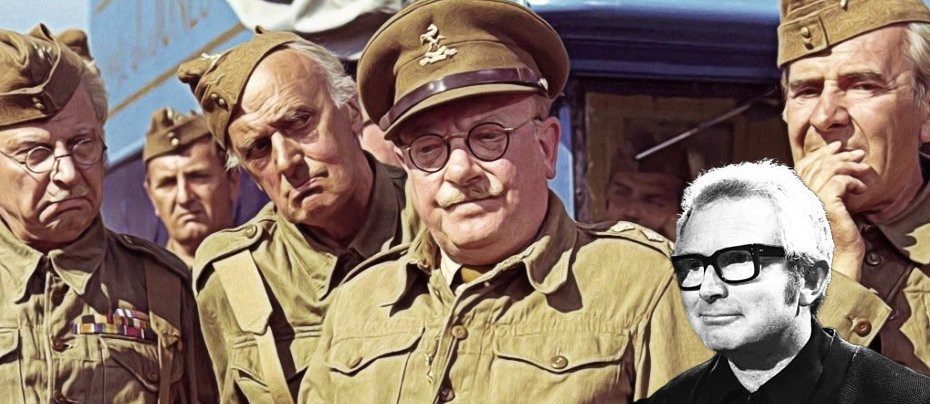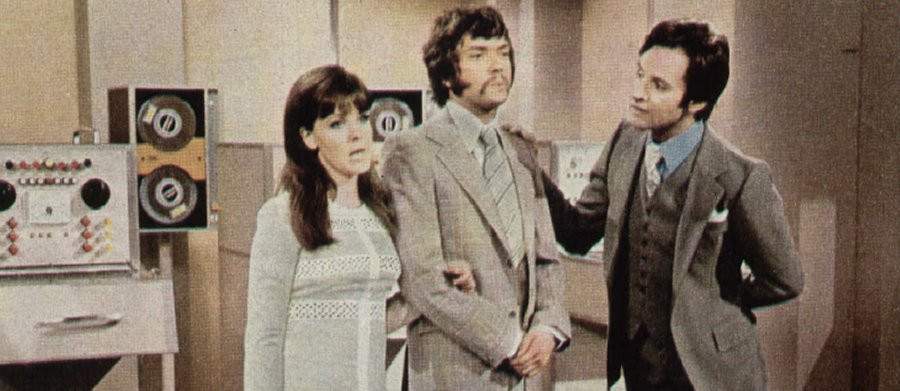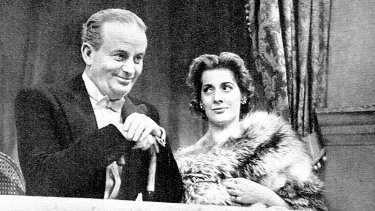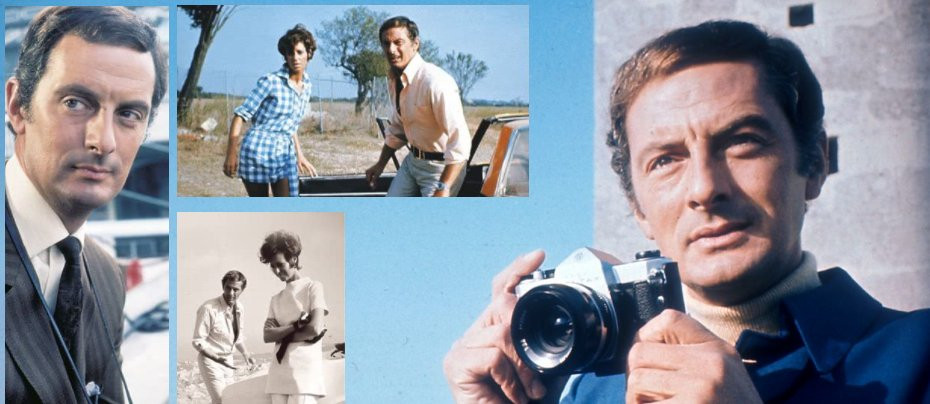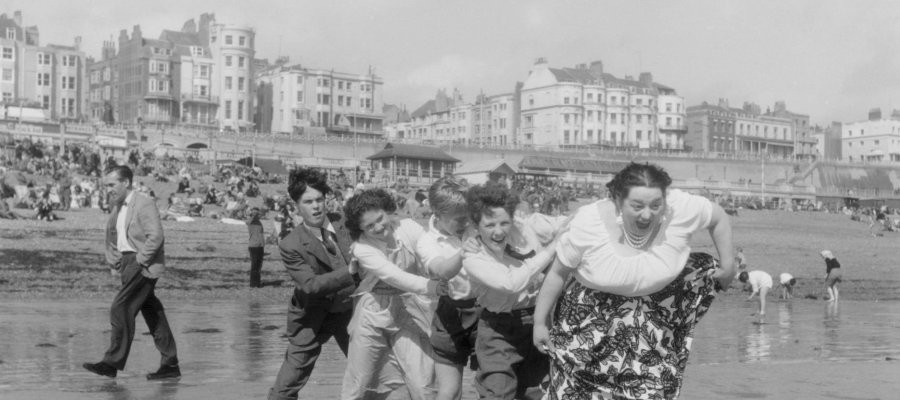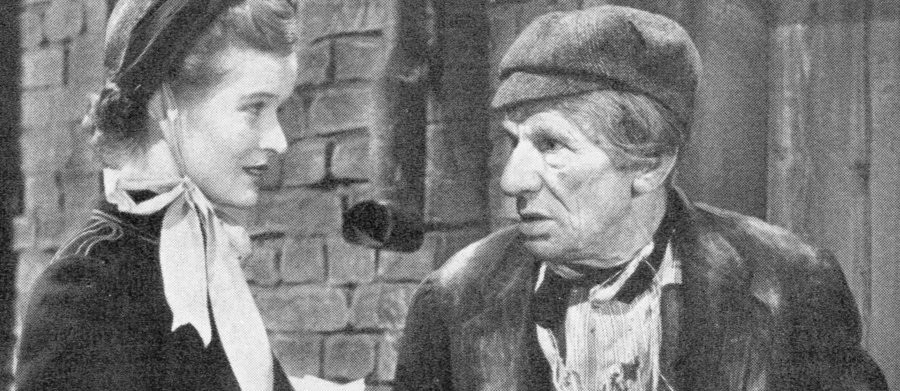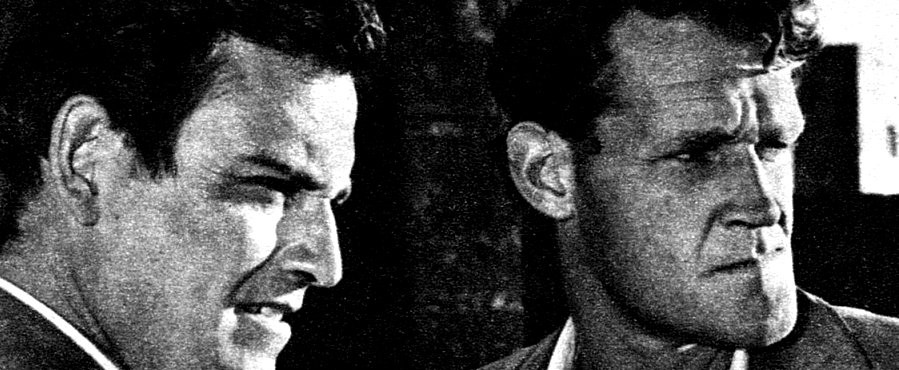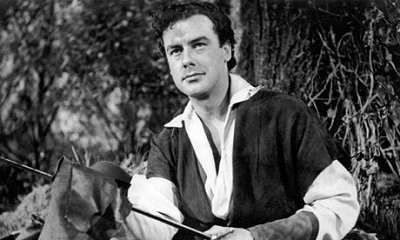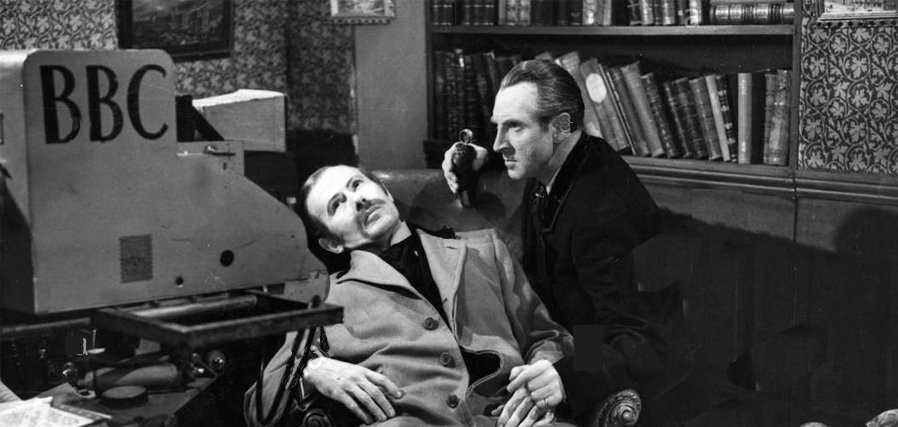
Sherlock Holmes
1951 - United KingdomEach 35-minute episode was aired live and consequently, no tapes exist of any of the episodes in the series
Caroline Alice Lejeune was the film critic for The Observer newspaper from 1928 to 1960. Lejeune became increasingly disillusioned by various trends in films towards the end of the 1950s and early 1960s. But she commanded a lot of respect for her reviews and following the performance of Alan Wheatley in a BBC play titled Rope, a murder-mystery originally written by Patrick Hamilton, Lejuene wrote in her column, "If the BBC have got any sense they will commission a series of Sherlock Holmes stories and ask Alan Wheatley to play Sherlock Holmes." In response, the BBC said they would do a series if Lejeune wrote the scripts. She agreed and the 1951 series Sherlock Holmes became the first of the famous detective’s stories to be adapted for television as a series.
Lejuene wrote all six episodes and told readers of the Radio Times (October 14-20 1951): 'It seemed wholly proper that in Festival year (1951 saw a national exhibition on the South Bank of the Thames: The Festival of Britain) British television should pay its own tribute to the great man of Baker Street. The most assiduous care has been taken to see that every historical detail shall be authentic, and Ian Atkins, the producer, insists that for him the series is 'practically a documentary programme.'

'It was not an easy task to decide which six adventures, out of the sixty stories available, should be dramatised. The Sherlock Holmes series began in 1881. It continued, with intervals during which Conan Doyle tried in vain to get rid of his too masterful detective, until the outbreak of the First World War.' As is widely known, Doyle did kill Holmes off in The Final Problem, sending his hero (and his arch-rival Professor Moriarty) over the Reichenbach Falls, but such was the outcry from Holmes' adoring public that Doyle was forced to bring him back in The Adventure of the Empty House which is set three years after Holmes' apparent death. It was this story that was chosen to start the series.
Following on from The Empty House was Bohemia and the other stories in the series were titled The Dying Detective, The Reigate Squires, The Red-Headed League and The Second Stain. Each 35-minute episode was aired live and consequently no tapes exist of any of the episodes in the series. Talking to Peter Haining in 1994 for the book The Television Sherlock Holmes, Alan Wheatley (better known as the Sheriff of Nottingham in The Adventures of Robin Hood) recounted the pitfalls of performing on live television in an era that was still very much an experimental and learning stage of TV production: 'I must say I found it the most difficult thing to speak I've ever done in the whole of my career. Unfortunately, Miss Lejeune also did some things that are just not possible—technical things like not allowing enough time for changes. You see, television was live in those days, and in one particular scene she finished up with a sentence from me, and opened the next scene also with a sentence from me in heavy disguise, with no time at all for a change!'
'The Empty House precedes Scandal in Bohemia (a much earlier Holmes story), for the very simple reason that it brings Holmes back from the dead,' wrote Lejuene. 'Were the story not to be told at this point it would be necessary to kill Holmes and resuscitate him all over again later in the series.'
Playing the role of Watson was Raymond Francis (who would later become a famous fictional detective in his own right in No Hiding Place) who made headlines in his local press (the Eastbourne Herald) under the caption: “Local man as Dr. Watson on television”.
’40-year-old Raymond Francis makes a daily trip to London from his home. High Bank, Borough Lane, Eastbourne. His reason? It’s elementary, for he is taking the part of Dr. Watson, Sherlock Holmes’s right-hand man, in the new B.B.C. television series about the famous sleuth.
To-day (Saturday) at 8 p.m., the second of the chapters will unfold itself on the screens of televiewers as Raymond Francis and Alan Wheatley (Sherlock) try to unravel "A Scandal in Bohemia." Some people think Raymond returns home from Alexandra Palace to see the finished article on an Eastbourne screen, for they hear so much about film being used for production of television programmes. It is not so easy. "Except for a few seconds the play is a 'live' one," he told a Herald Chronicle reporter this week. "The only time a film is used is when we have awkward scenes like getting in and out of a cab."
The other day, when one of those scenes was being shot, the cab rolled over a kerb and completely upset. "Dr. Watson" had alighted a moment before.
“Dr Watson's" facial whiskers are home-grown because Raymond dislikes sticking on artificial beards, moustaches and “sideboards.” This put him in a bit of a spot recently when another artiste had to wear a similar disguise. Quite innocently the “props” department demanded that he should give up his whiskers! It seems he retained them after a great struggle.
Born at Bexhill, Raymond's life has since been closely associated with the district around Eastbourne, and he has lived here for several years. His wife is a great-niece of the late Alderman J C Towner, whose name is perpetuated in the Towner Art Gallery. The first time Raymond appeared on a local stage was at Devonshire Park Theatre in 1932, during a repertory production by Mr Murray King. In 1947, Raymond took the lead in “Lady from Edinburgh” at the same theatre. He has been in the theatrical profession since 1928, and the latest film in which he appears, “Mr Denning Drives North,” starring John Mills, has yet to be released. In the Royal Armoured Corps for over five years during the war, he spent a further six months with “Stars in Battledress."’
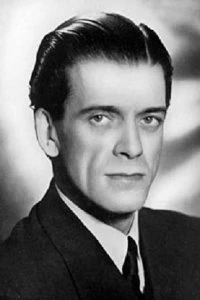
Other performers on their way to television notability, that appeared in the Sherlock Holmes series, were Bill Owen (Last of the Summer Wine) as Inspector Lestrade, John Le Mesurier (Dad's Army), Sebastian Cabot (Family Affair), Geoffrey Chater (Callan) and Sam Kydd (just about everything).
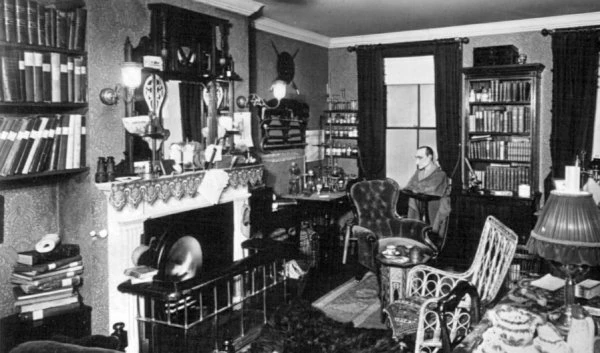
On 22 May 1951 an exhibition opened at Abbey House, Baker Street, London NW1, where adults (for the admission price of one shilling) and children (sixpence) could visit a collection of 'Sherlockiana'. The exhibition was Westminster Council's contribution to the Festival of Britain. The centrepiece of the exhibition was a full-scale reproduction of Sherlock Holmes' sitting room as it would have appeared in 1898. One of the BBC's contributions to the Festival was a 30-minute play for children titled The Adventure of the Mazarin Stone, a Holmes story which was broadcast on Sunday 29 July 1951 at 5.30pm. Holmes was played by Andrew Osborn and Watson by Philip King. A promotional film for the Holmes exhibition still exists and can be found on YouTube.
Having been the critic of many film and television productions for many years, indeed she was one of the first British women in the profession, Caroline Alice Lejeune had now placed herself in a position where she might well have been condemned by her peers if they had judged her series a failure. In actual fact, the reviews were a mixed bag with very few negative comments.
The critic in the Kensington Post wrote: I welcome Sherlock Holmes to TV and likewise Dr. Watson, but I thought Alan Wheatley was more like the psychopathic killer he played in "Rope" than the respectable, if eccentric and high-brow, upholder of law and order that he is supposed to be as Holmes. On Saturday I was half-expecting him to throw off his disguise and artistically strangle Dr. Watson.
Alfred Wilcox of the Yorkshire Evening Post clearly wasn’t enthralled: I don't think many would have been greatly impressed with the first of the Sherlock Holmes revivals. Though not the first of the fiction detectives, Sherlock Holmes gave lead to modern crime stories, but that lead is now a far-distant thing and, in the face of crime and detection of today, "The Empty Room" was almost empty as its title. We have a Yorkshire way of summing up such production—"Neither nowt nor summit.”
The Manchester Evening News critic was more encouraging: The first of the Sherlock Holmes series, The Empty House, promised well for Saturday entertainment. Alan Wheatley gave us a convincing Holmes. The Times critic was, with a little reservation, also positive: The performance was done in a proper spirit of seriousness. Mr. Alan Wheatley, though rather younger and fuller in the face than the Holmes of his opponents' nightmares, catches the essential character.
The Huddersfield Daily Examiner said: Another Saturday high was "The Empty House”, first of the series by Miss C A Lejeune dealing with the exploits of that famous fictional detective Sherlock Holmes. I have no doubt that further plays of this sort, and there are to be six in all - will be eagerly awaited.

The most positive review was given by the Birmingham Mail: At the end of a week in which distinguished politicians had disported themselves on the screen, more or less successfully, and made history by being the first to bring television to the aid of a general election campaign, it was a relief to meet someone equally distinguished —and more famous— in the world of fiction. This was none other than that inimitable detective Mr Sherlock Holmes, given flesh blood by Alan Wheatley who is portraying Holmes in short plays written by C A Lejeune, the film critic, from Conan Doyle's original stories. By choosing “The Empty House” with which to begin the series on Saturday night Miss Lejeune, who has steeped herself in the books which have been written about Conan Doyle's hero, passed over the Reichenbach Falls episode when he disappeared into the abyss. In “The Empty House” he had come back from the dead, so to speak, to earn greater fame with his companion Dr. Watson. The ignoring of chronological sequence by Miss Lejeune will be no detriment to building up of the character of the two men on television. The production on Saturday night, like the acting, had all the crispness and polish that Conan Doyle gave to his stories, and it promises well for the success of this venture by television.
Despite the positive reviews, the 1951 series of Sherlock Holmes failed to inspire further series of the famous detective's adventures, and it was another fifteen years before the British public was given the chance to admire Conan Doyle's iconic creation on the small screen. A 1954 series starring an all-British cast was an American adaptation (filmed in Paris) and proved hugely successful, but it was not shown in the UK until many years later. It was 1965 before a Sherlock Holmes series would return to British screens.
Seen this show? How do you rate it?
Seen this show? How do you rate it?
Published on July 10th, 2023. Written by Laurence Marcus for Television Heaven.


